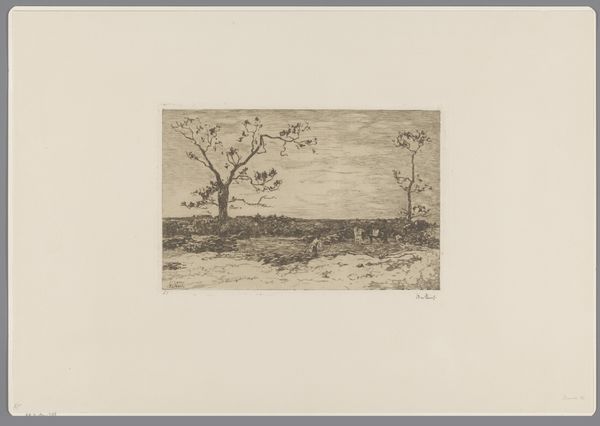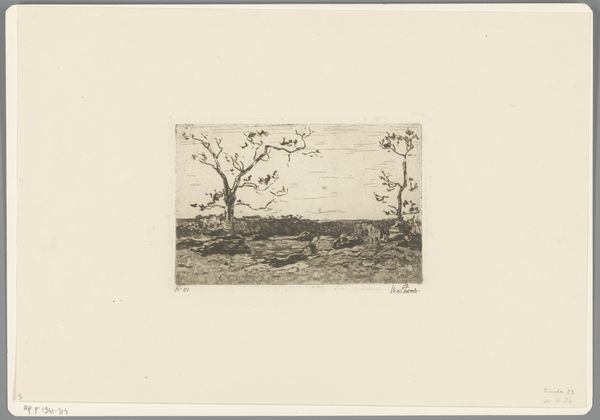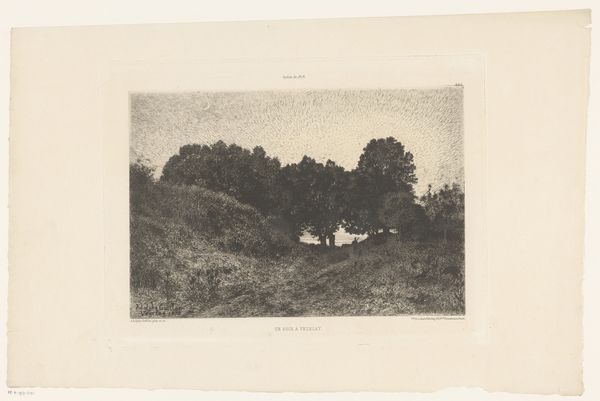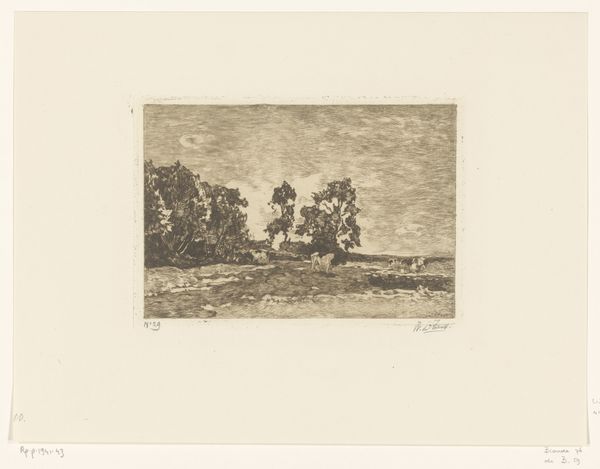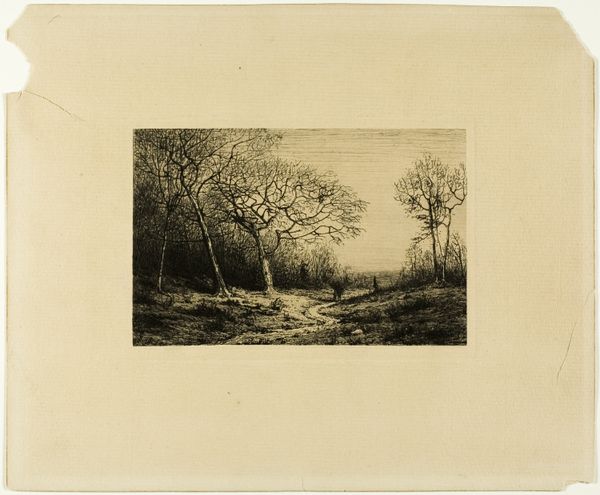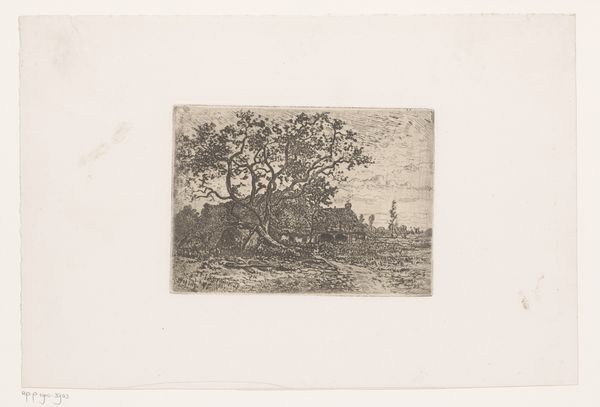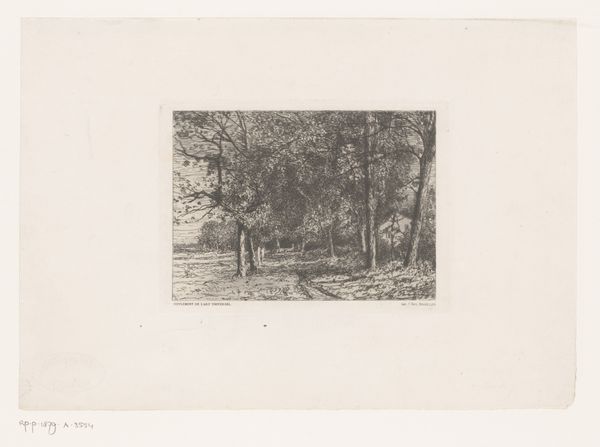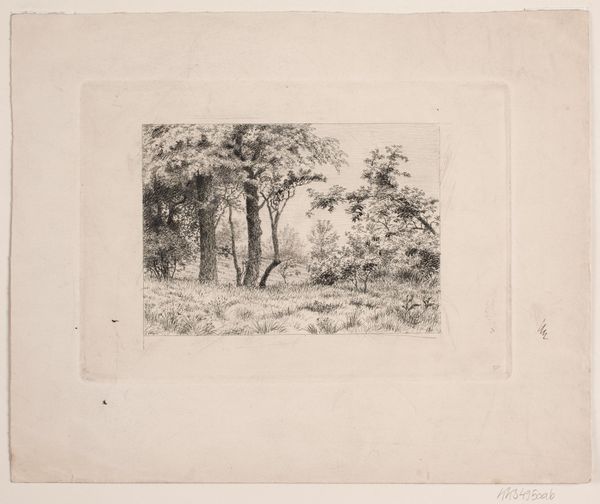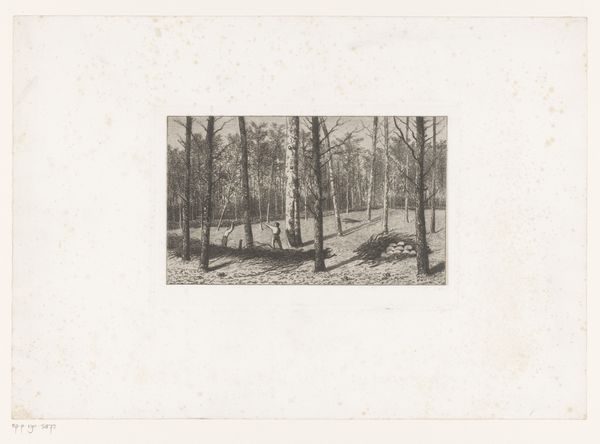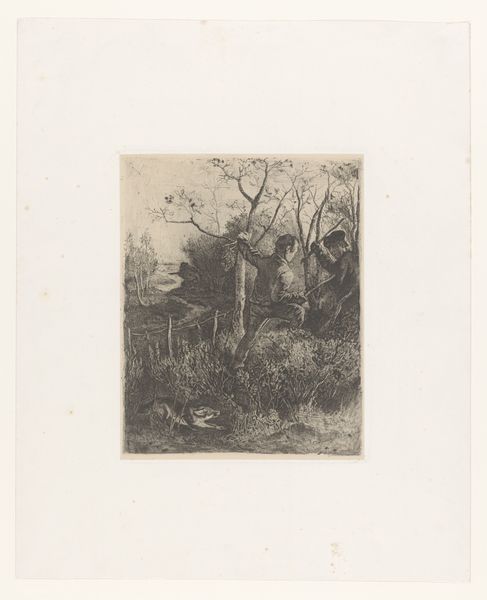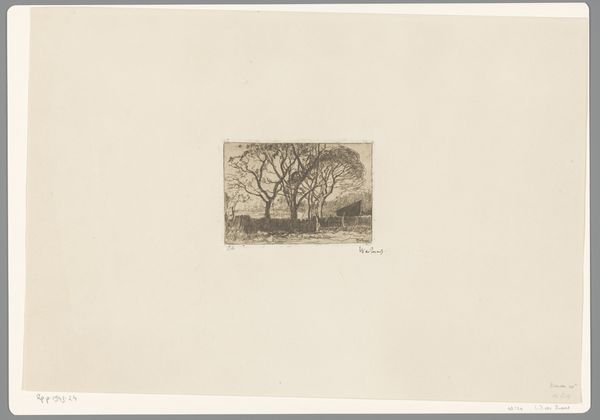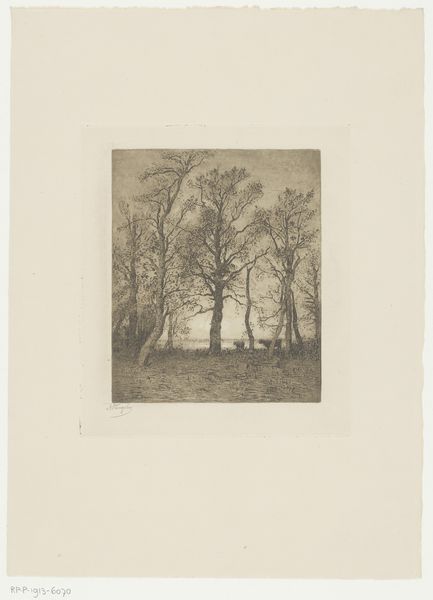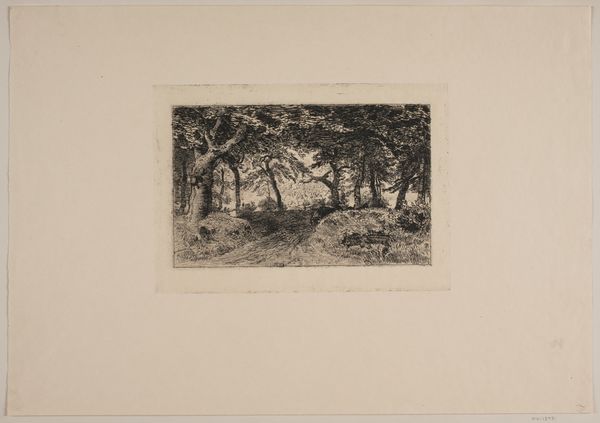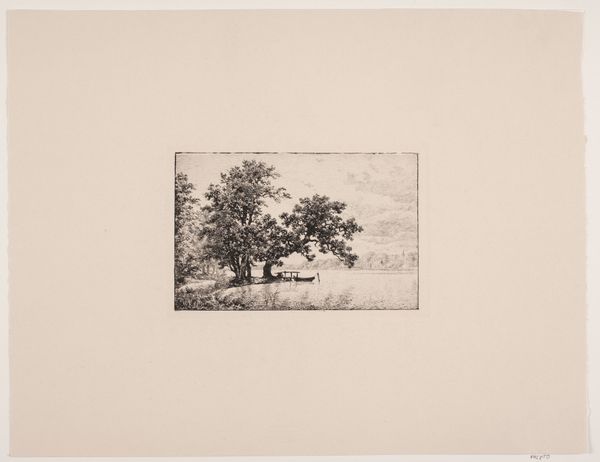
etching, paper
#
light pencil work
#
impressionism
#
etching
#
light coloured
#
old engraving style
#
landscape
#
white palette
#
paper
#
road
#
pencil work
Dimensions: height 160 mm, width 240 mm
Copyright: Rijks Museum: Open Domain
Curator: This is Emile de Baré’s “Landweg door lage begroeiing,” created sometime between 1865 and 1902. It’s an etching on paper. Editor: My first impression is one of delicate melancholy. The stark tree against that heavy sky... It's austere but somehow inviting. Curator: Indeed. Consider the etching technique itself: acid biting into the metal plate, a laborious process to create these fine, almost fragile lines. It mirrors the fragility of the landscape. Editor: And look at the paper choice – it's crucial here. The off-white tone, almost translucent, enhances that sense of fading memory. There’s something about the subtle tonal shifts, like whispers of the past clinging to the material. Curator: Notice how the artist uses the road, the “landweg,” as a path into the unknown. Roads have always been powerful symbols—journeys, choices, the ever-unfolding future. It’s as if Baré is asking us to consider where our own paths are leading. Editor: I wonder about the edition size. Was this widely circulated, or was it intended for a small circle? That would impact how we interpret its social reach. The material scarcity contributes to its mystique, its aura as something precious and perhaps elusive. Curator: Perhaps the limited access adds to the potency of the work itself, allowing its message to resonate more profoundly with those who encounter it. The sky, heavy with what looks like impending weather, may symbolize societal uncertainty. It’s a landscape pregnant with unspoken narratives. Editor: Precisely. Considering the possible context, were these tumultuous times that Baré sought to represent in a rather muted yet powerful landscape such as this one? A work’s cultural power emerges from these tangible elements. Curator: The etching invites reflection, doesn’t it? It asks us to slow down and consider the intersection of nature, culture, and individual experience. Editor: Agreed. De Baré coaxes meaning from the earth itself, turning lead and paper into a mirror for introspection and reminding us about art's ability to reveal unseen labour.
Comments
No comments
Be the first to comment and join the conversation on the ultimate creative platform.
